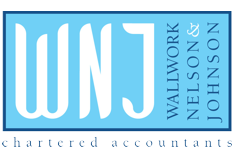As 2024 comes to a close it’s time to look ahead to the new year. Here are some key dates for your new diary. And don’t forget we’re here at WNJ to help you with any advice or support you may need in the next 12 months. Call us on 01772 430000.
January
January 1
Energy Price Cap
Ofgem is increasing the energy price cap from £1,717 to £1,738.
This is less severe than some of the increases seen in the previous year, but you may still find that your business is impacted by the additional costs.
Private school fees
Fees fees for terms starting on or after January 1 2025 will generally now be subject to UK standard-rated VAT, instead of being VAT exempt. This will also cover many deposits and prepayments made in 2024 or before, for 2025 and onwards school terms.
January 31
Self Assessment Tax Returns
This is the final deadline for electronic submission for individual, partnership and trust self assessment tax returns for the 2023/24 tax year. Anyone who has not yet paid the balance of their self assessment tax bill for 2023/24 will need to pay it by this date. The first payment on account for the 2024/25 tax year is also due.
March
March 2
Rail fare increases
Regulated train fares are set to increase by 4.6 per cent. The increase will apply to season tickets covering most commuter routes, some off-peak return tickets on long distance journeys and flexible tickets for travel in and around some major cities.
Train companies can set unregulated fares but they usually increase these by a similar amount. It is the lowest absolute increase in three years but will still add to travelling costs
April
April 1
National Minimum Wage
The National Living Wage, which applies to anyone aged 21 and over, increases to £12.21. This is a 6.7 per cent rise.
The rate paid to 18-20-year-olds will rise to £10, a 16.3 per cent increase. And 16-17-year-olds and apprentices will receive £7.55, an 18 per cent increase.
Stamp duty land tax
The government has confirmed that the temporary increase to stamp duty land tax (SDLT) free thresholds will end. The threshold for first time buyers reduces to £300,000. For everyone else the nil rate SDLT threshold reduces to £125,000.
Business rates
The standard multiplier for business rates increases to 55.5p. However, the small business multiplier – which applies to properties with a rateable value of less than £51,000 will stay frozen at 49.9p
Furnished Holiday Lettings (FHL) regime
The abolition of the FHL regime removes a longstanding tax advantage that treated qualifying holiday lets as trading rather than investment properties.
Holiday let owners will see their properties aligned with standard residential lettings for tax purposes. Profits will be treated as property income rather than trading income, restricting loss relief and changing the calculation of capital gains tax.
Those currently claiming capital allowances will need to review their position, though transitional provisions protect existing allowances. The changes particularly affect owners who planned to claim Business Asset Disposal Relief on eventual sale, as this 10 per cent rate will no longer be available.
April 6 – New tax year begins
Employers National Insurance
The Employers National Insurance (NI) rate increases to 15 per cent from 13.8 per cent for the new tax year. The Secondary Threshold – the threshold at which employer NI contributions begin to be paid – also reduces to £5,000 a year.
If you run your own payroll check that its software has been updated to take into account these changes.
The maximum Employment Allowance will go up from £5,000 to £10,500. In addition, the restriction that prevents employers that have paid more than £100,000 in employers NICs in the previous tax year from claiming has been removed.
It means all eligible businesses will now be able to claim the reduction, regardless of how much employer’s NICs they paid in 2024/25.
Dividend allowance
There is no change to the dividend allowance – it stays at £500 for the tax year.
Capital gains tax
The rate on gains subject to business asset disposal relief and investors relief will go up to 14 per cent from 10 per cent. The rate will increase to 18 per cent from April 6 2026. People considering selling their business or retiring will need to factor this into their plans.
The capital gains tax rate for carried interest for both basic and higher payers is increased to 32 per cent. The intention is for this to be brought within the Income Tax Framework from the 2026/27 tax year.
Residence based regime for foreign income and gains
The concept of domicile in tax regulations ends and a new residence-based regime begins. A Temporary Repatriation Facility (TRF) will be available for three years to taxpayers who previously used the remittance basis.
Individuals can elect to pay tax at the TRF rate of 12 per cent in the 2025/26 tax year on offshore funds they designate. The designated funds will not then be taxed on remittance to the UK.
Company car tax
The appropriate percentage for all company car users – assuming no change in vehicle – increases by one per cent.
Statutory family-related pay increase
Statutory maternity, paternity, adoption, shared parental leave and parental bereavement leave pay rates will increase from £184.03 to £187.18 a week for periods of leave from April 6.
Statutory Sick Pay (SSP)
Statutory Sick Pay increases from £116.75 per week to £118.75 per week for periods of sick leave from April 2025. Where a worker is on sick leave for less than a week, or a fraction of a week, the weekly statutory SSP rate is paid on a pro-rata basis.
Workers must earn at least the Lower Earnings Limit – which is £123 per week until April 2025 – to be entitled to SSP.
Additionally, SSP is only payable after the three-day waiting period that the worker is off sick; unless the worker previously received SSP within the last eight weeks.
Payroll
Update employee payroll records for the new tax year
April 7
State pension increase
The State Pension is set to rise 4.1 per cent in accordance with the triple-lock approach. This will take a full state pension to £230.25 per week.
April 19
Payroll
Submit your final Full Payment Summary and Employer payment summary for the year ended 5 April 2023 and pay any tax/NIC due for the year.
May
May 31
Each employee who was employed as at April 5 must be issued with a P60 form, on paper or electronically.
July
July 6
This is the deadline for submitting the 2024/25 tax year P11D forms to HMRC. It is also the deadline for submitting the return of Employment Related Securities.
July 19
Payment of Class 1A NICs by post: July 22, 2025 if paid electronically.
July 31
Payment on account deadline
This is the payment deadline for self-employed people who need to make a second payment on account towards their self assessment tax bill for the 2025/26 tax year.
October
October 5
Self assessment registration
This is the deadline for taxpayers to tell HMRC if they need to complete a self assessment tax return for the 2024/25 tax year and have not sent one before.
If you’re in a partnership and a new partner has joined you in the 2024/25 tax year, you should notify HMRC by this date as well.
October 31
Self assessment tax return
Anyone who wants to submit a paper self assessment tax return needs to submit it by midnight October 31.
December
December 30
Those self assessment taxpayers who wish HMRC to collect any tax due via their PAYE tax code should file their 2024/25 self assessment return by this date.
Other dates to be aware of
Corporation tax and company accounts
The deadlines for filing company accounts and corporation tax returns, as well as making corporation tax payments, are linked to a company’s accounting period end.
Companies with standard accounting periods need to pay corporation tax nine months and one day after their accounting period ends. The corporation tax return is due 12 months after the accounting period ends.
A copy of the statutory accounts also needs to be filed at Companies House. Accounts must be filed nine months after the company’s financial year ends. In addition, the annual confirmation statement must be completed every 12 months.
VAT returns and payments
VAT payment deadlines are usually one month and seven days following the end of the VAT accounting period, with the VAT return being due on the same date.
PAYE
For employers, PAYE deductions must be paid to HMRC by the 19th of each month or 22nd if the payment is made electronically.
Capital gains tax
For those who sell a second property in the UK, any Capital Gains Tax due must be paid and the gain reported within 60 days of completion.

